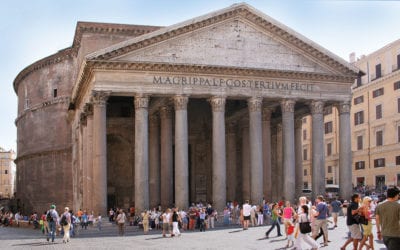The federal government has redefined truth in advertising. Make sure to read the fine print.
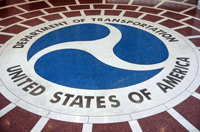 How are we to know what the price of travel products will be? The DOT allows airlines to separate baggage, seat assignments, and more from airline tickets. The FAA allows at least two levels of safety, not the one that they claim and tout. And the FTC allows hotels to hide extra fees and excludes them from the advertised price.
How are we to know what the price of travel products will be? The DOT allows airlines to separate baggage, seat assignments, and more from airline tickets. The FAA allows at least two levels of safety, not the one that they claim and tout. And the FTC allows hotels to hide extra fees and excludes them from the advertised price.
All three of these federal organizations are responsible for truth in advertising. But they have managed to redefine truth in pricing and claim that it is not found in the bold-faced prices but that consumers should read the fine print. Some protections!
Airfare has been defined without baggage fees and other “optional” charges to fly.
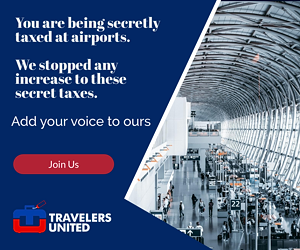 Since 2008, American Airlines has charged for checked baggage. Since then the airlines have added fees for scores of different benefits, which used to be included in the ticket price. Eventually, after much work behind the scenes, Travelers United got the DOT to define airfare.
Since 2008, American Airlines has charged for checked baggage. Since then the airlines have added fees for scores of different benefits, which used to be included in the ticket price. Eventually, after much work behind the scenes, Travelers United got the DOT to define airfare.
Unfortunately, it announced that airfare was the amount it cost to move a passenger from Point A to Point B. Everything additional was “optional.” This opened the door to airlines charging for checked baggage, seat reservations, telephone assistance, and more. Some ultra-low-cost carriers (ULCC) even charge to buy tickets anywhere other than at the airport.
Consumer advocates are still waiting for the new ways that these ancillary fees will be purchased in the future.
Federal law claims one level of safety, but the FAA allows loopholes that allow some scheduled airlines to skirt the law.
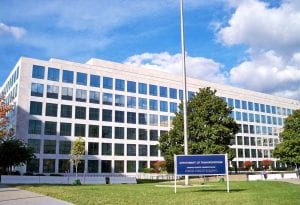
FAA Headquarters Buildling
According to FAA rules, all pilots need 1,500 hours to fly scheduled airlines. The FAA also monitors pilot retirement rules for American-based airlines. These laws were created to protect passengers. Almost everyone waiting at TSA security checkpoints at airports assumes everyone faces the same pre-boarding scrutiny.
The dirty secret is that there is an entire class of commercial passengers who get to avoid security checks we find so unpleasant. Plus, they can avoid the maddening crowds of travelers between big cities and vacation destinations. Where has the truth in advertising gone?
How many fliers know the difference between Part 121 and Part 135 for air traffic? It is found in the fine print of FAA safety regulations. Welcome to JSX. This is an airline that only exists because of FAA loopholes. Here is the truth in fine print:
As a matter of safety, providing scheduled service under Part 135 skirts a host of scheduled-airline safety regulations contained in Part 121, including the 1,500-hour threshold for an Airline Transport Pilot certificate (a/k/a First Officer Qualifications), the age 65 retirement mandate, and minimum rest along with no interrupted rest. These and other Part 121 safety regulations have kept U.S. aviation as the safest mode of transportation in the world, but which do not apply to companies abusing the loophole in the regulatory regime. Operating scheduled flights in this way carries out an end-run around the FAA’s commitment since the mid-1990s to One Level of Safety, which required that Part 135 scheduled carriers move to the higher, more stringent Part 121 standard.
As a matter of security, passengers flying these flights are not subjected to traditional TSA magnetometer and X-ray airport security checkpoints. Instead, passengers are cross-checked against the TSA No Fly List, without more screening. Indeed, avoiding TSA “invasive security procedures” is the major source of the time savings and the exclusive “one percenter” experience JSX offers. Yet security requirements brought forward by TSA since the terrorist attacks of September 11, 2001, have been essential to maintaining the security of our nation’s aviation system and our homeland security.
We are also concerned about elevated emissions and increased airspace congestion…
The FTC allows hotels to hide extra fees and excludes them from the advertised price. Where is truth in advertising?
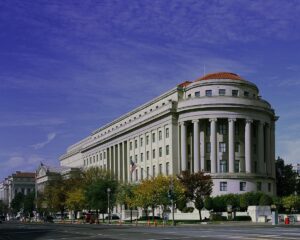
Travelers United advocates an end to deceptive mandatory hotel fees, often called resort fees. Hotels usually advertise a nightly rate per room but don’t indicate until guests arrive or receive their final bills that they must pay a mandatory ‘resort fee.’ Or, they make the fact that the fee is not included challenging to ascertain.
These fees are usually called resort fees, but since it is a fee that exists so the hotel can lie about the advertised price, a resort fee has nothing to do with a hotel being an actual resort. At many hotels, these fees are called an urban fee, an amenity fee, a destination fee, a destination amenity fee, a safe fee, or a resort charge.

READ ALSO:
Safe Fees, nothing but Hotel Resort Fees by another name
Mandatory hotel fees — deceptive, misleading

Charlie Leocha is the President of Travelers United. He has been working in Washington, DC, for the past 14 years with Congress, the Department of Transportation, and industry stakeholders on travel issues. He was the first consumer representative to the Advisory Committee for Aviation Consumer Protections appointed by the Secretary of Transportation from 2012 through 2018.


